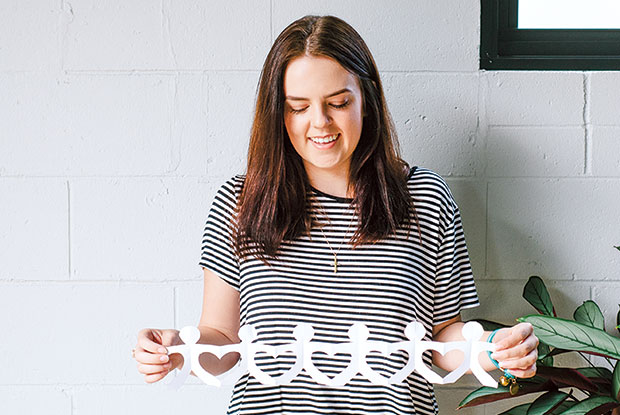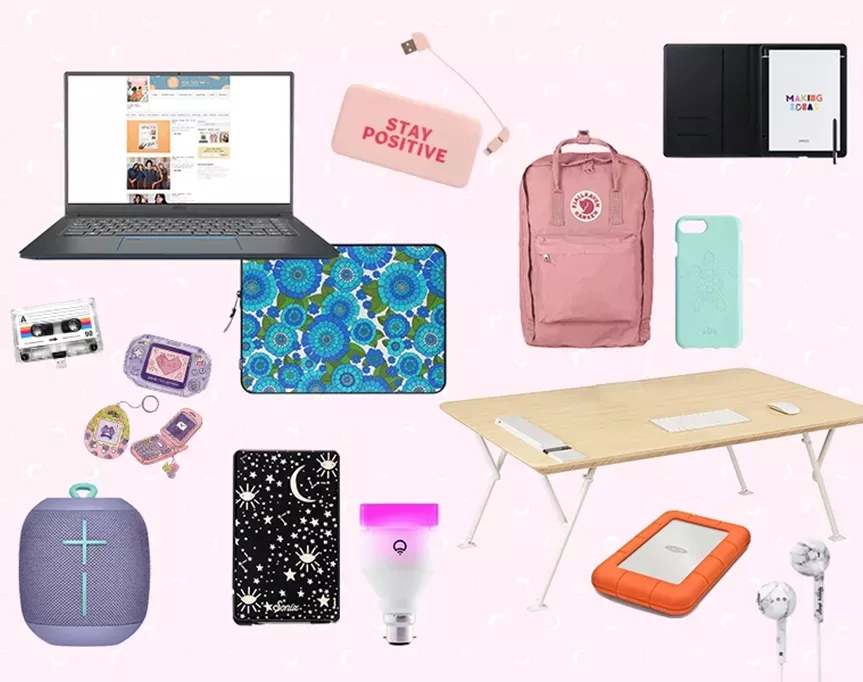pieces of me
Emma Andrews is a disability advocate and matchmaker of sorts.
Emma Andrews is a disability advocate and matchmaker of sorts. Here, she tells us why she's passionate about changing perceptions of disability and how the idea for FriendShift, a relationship-building program for kids with special needs, came about. 
My mum went into politics in 2010, and in the pre-selection stage she was invited to a disco at a special needs school. She always said if we had any opportunities to volunteer for something we should take them, so my two younger sisters and I went along. We were really nervous, but we had an absolute ball. It was fun, just hanging out with the students as kids, not ‘special needs kids’. That’s where the idea of working with people with disabilities started for me.
When I was 15 I was chosen to attend The Sony Foundation Children’s Holiday Camp at the Southport School on the Gold Coast. The camp takes 30 children with special needs every year, and matches them with a student who has to care for them 24 hours a day, for four days. The camp provides respite for parents, but it also gives the kids a chance to be kids.
I was given a little girl with Down syndrome to look after, who was also deaf and had food allergies. It was really confronting, especially because I wasn’t told she was deaf until I met her, and I didn’t know any sign language. I suddenly had to try to learn it so we could communicate. She was lovely, but there was one word she kept signing and I couldn’t work out what it was. It was really upsetting because she would sign it, then point to me, then walk away. I thought she hated me. On the last day her parents came and I told her mother what had happened. Her mother said, “She’s signing that you’re her friend.” We burst into tears – I was so relieved, because all that time I thought she was really unhappy. That’s when I knew I wanted to work in this area. Seeing how my peers changed around the children was amazing – seeing the really ‘cool’ guys and the clichéd popular girls relating to these kids. It was very deep for 15-year-old me. I’ve done it seven more times and now I run the camp.
I went to university to study psychology, and there was a camp there where I met a little boy named TJ. He’s very intellectually disabled and he has autism. When I met him he was five and he hadn’t slept for more than 20 minutes at a time, ever. At the camp, he pretty much screamed for four days. One day we took the kids to a fun park and it was just too much for TJ. I tried my best to keep him calm, but it was really hard. Other people who weren’t with our group came up to me and said things like, “You’re ruining our time here because you can’t control that boy.”
TJ has an older brother who also has special needs, and their mum is on her own. A lot of special needs children are cared for by single parents. After the camp I used to babysit TJ sometimes, to help his mum out. Once I took him to the shops and he had a total meltdown. An older couple came up to me and said, “If you’re going to be a teen parent then you should learn to look after your son better!” I’m now his full-time carer, but I’m also his friend. TJ is non-verbal, so he comes to me when he needs things. He has different ways of communicating, so it’s not like a relationship with a neurotypical child, but we are close. Every day with TJ is hard; it’s not picture-perfect. He has a tendency to be violent, but he’s only seven so he can’t cause too much havoc. I have moments when I think, “Do I want to be doing this?”, but there are so many rewarding parts to it. They keep me thinking, “Yes, I really do want to be here.”
It’s not long since kids like TJ were institutionalised. That’s changed, but people with special needs are still very hidden in our communities. People are so afraid of the public perception that they don’t take them out, unless it’s first thing in the morning or last thing at night when there aren’t so many other people around. I have a 17-year-old friend with special needs who has lots of cousins and family around her age, but no one has ever asked her if she would like to go to the movies. People with special needs want to do the same things as everyone else – they want to have friends and hang out. We need to open up the boundaries.
About a year ago I was working at a special needs school and talking to the principal about ways we could encourage friendships. We let the idea sit there, then one day my friend Jackson Wischlinski came up to me and my boyfriend, Thaddeus McFarlane, and said, “We’re young, we’ve got connections, we need to do something to change the world!” I said, “Hang on, Jackson, maybe we’ll just start with the Gold Coast first.” We’d all done the TSS Sony Camp together and knew how rewarding that experience was for everyone. We wanted to work out a way to build friendships that focused on the relationship, not the disability. We called it FriendShift.
FriendShift is not about respite care – it’s about having fun and building relationships. We ask volunteers to have a Blue Card (a free check that clears you to work with children), and all they need besides that is an open mind. Obviously the levels of experience determine who we match them with, but the important thing is they’re willing to help. In special needs schools the classes are usually very small, around four to six kids. They’re able to form relationships, but because a lot of them have social skill deficits, the best way to develop those skills is to spend time with older people or fully-functioning children.
We held our first event in May, where we invited students from a special needs school and some volunteers, and set up some games and bouncy castles. The parents came, but they hung back and let the kids have fun. It was a huge success and we’re planning to do more.
I want to change people’s perceptions about special needs and disabilities. I want to create a community that’s accepting and tolerant, so if you’re out somewhere and you see a screaming child, you might think about what their situation is before you judge them. I also realise that while it’s cute to hang out with a child who knows the names of every single dinosaur, or who might be in a wheelchair, it’s a lot harder to deal with the meltdowns of a 40-year-old man with special needs. So one of the ideas behind FriendShift is to tell people that these kids will grow up with you. It can be hard to change older people’s perceptions, but I’m hoping if we start with this generation, we’ll get there.
Through doing this work I’ve had the chance to speak to a lot of people, and many of them say, “I’m not ignorant, but I’m afraid. I don’t know what to say and I don’t want to offend anyone.” I tell them if you try to do the right thing, people with special needs are very accepting. I remember seeing a really confident friend of mine shaking at my first Sony camp, saying he wasn’t sure if he could do it. A little boy with special needs came up to him and said, “I’ll help you.”
I want it to be normal to see people with special needs in everyday life. I want to normalise friendships between people, so you’re not seeing the disability first. We are all disabled in some way, but the difference is, when you and I meet each other we ask what our names are, not for a diagnosis.
Thanks to the kind types at UNiDAYS, uni students can nab 25 per cent off their frankie subscriptions. Just click here, then register or log in using your UNiDAYS member details. Easy as!
















.jpg&q=80&w=316&c=1&s=1)













.jpg&q=80&w=316&c=1&s=1)










